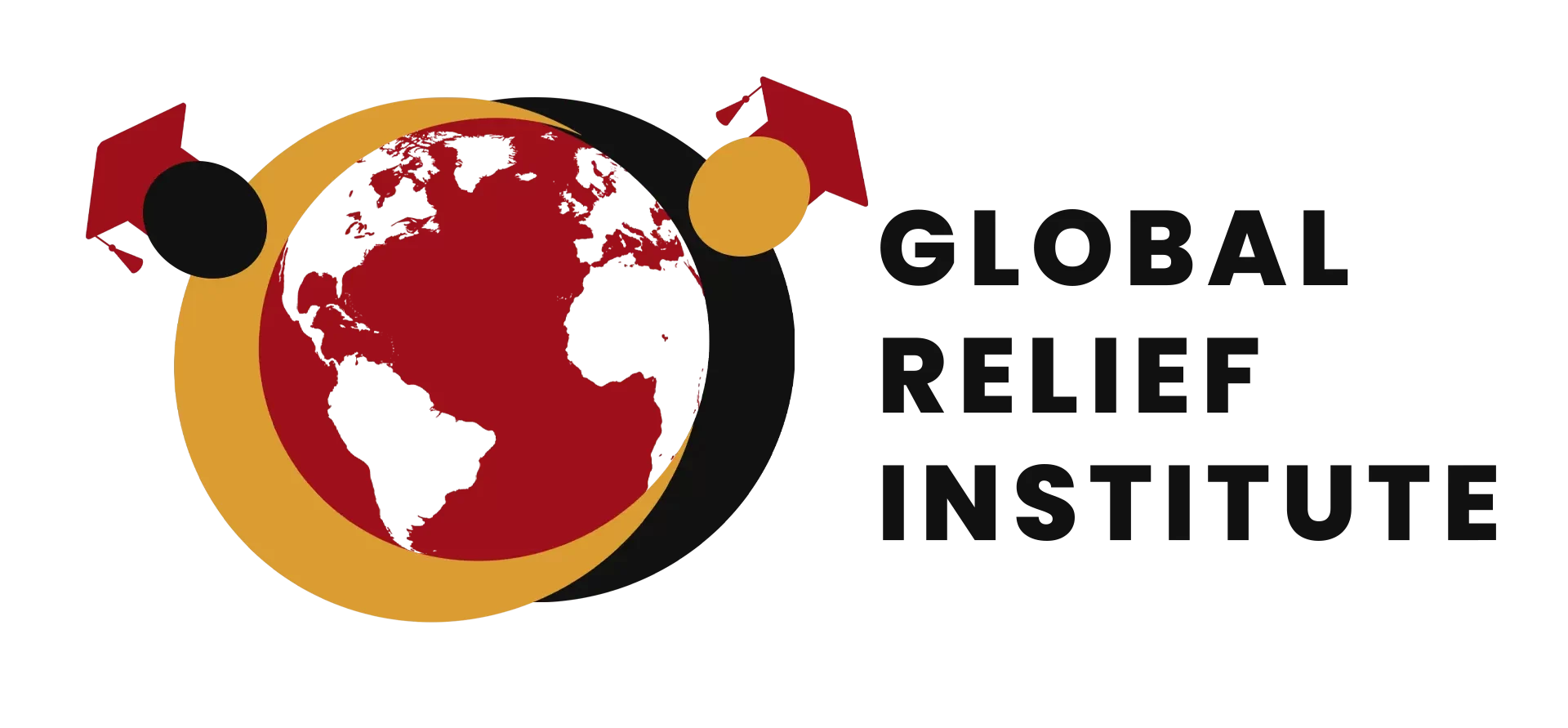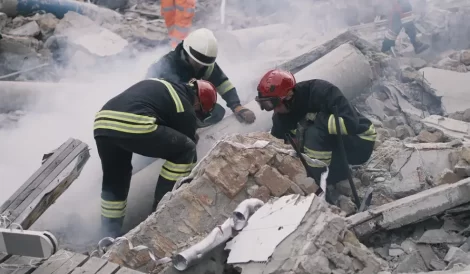Course Overview
The central objective of the course is to equip learners with conceptual and empirical knowledge as well as research skills necessary to understand and analyze contemporary issues pertaining to Geopolitics, Global Governance and International relations for balanced and globalized development.
This is an interdisciplinary as well as multi-disciplinary post graduate course that places particular focus on socio-economic development issues of global concern to the such as poverty, conflicts, governance, human rights, climate change, and global inequality, security and ideology.
This course is good for the persons and organizations involved in political academia and research, humanitarian governance and leadership, political journalism, corporate governance, political leadership, global governance, donor organization leadership, project leadership, program monitoring and evaluation, non-governmental organization (NGO) Leaderships, independent researchers , security managers, church leaders, Islamic scholars, Hindu religious scholars, lawyers, parliamentarians, devolved government leaders, and commercial attaches, consulates , commissioners, as well as diplomatic service workers.
Course Objectives
- This course accords the learners an opportunity to examine development processes, interventions, theories, policies, and geo-political structures in the global arena.
- It is expected that the learners will be able to better understand a number of salient issues in global governance.
- The learner is also expected to be able to apply concepts learned in class to the analysis of important issues in global.
Course Content
- Introduction to International Relations
- The origins and changing agendas of discipline
- Perspectives on the study of international politics
- Emergence of the International state System
- Power and mechanisms in Interstate relations
- International Relations Theory in an Age of Critical Diversity
- Necessity of theory
- Ontology
- Epistemology
- The science question in international relations and theory
- Mainstream international relations theory
- The era of critical diversity
- Realism
- What is realism?
- Who are the realists?
- Genesis of a tradition of thought Synthesizing theory and practice
- Liberalism
- Introduction to Liberalism
- The historical–political context of liberalism
- Contemporary liberal IR theory
- Marxism and Critical Theory of International Relations
- Historical and intellectual context
- Marx and the critique of capitalism
- Marxism as historical materialism
- Marx and Marxism in IR
- Critical Theories of IR
- Feminism
- International relations meets feminism
- the feminist IR agenda
- Tracing feminist international relations
- Challenging the masculine bias
- Where are the women?
- Reconstructing international relations
- Examining the differences between, sex and gender
- Progress towards gender equality in the academy and the policy world
- Men have genders too
- Feminist theories of international relations
- what does feminism add to our study of international relations?
- Postmodernism
- Postmodernity as a new historical period
- Postmodernism as a critical way of understanding modernity
- The emergence of the third debate in IR scholarship
- The polemical nature of debates about postmodernism
- Constructivism
- What does constructivism do?
- Identity and international institutions
- Constructivism’s understanding of change in the international system
- Theories of Global Justice
- Justice and international relations
- Why justice is global
- What is a just global order?
- The Modern State
- What is a state?
- Origins of the modern state
- the idea of the sovereign state
- The triumph of the sovereign state
- State-building as war making
- Whither the sovereign state?
- Nations and Nationalism
- Terminological debates
- How nationalism shaped modern states and international society
- Understanding nations and nationalism in IR
- Appeals to ‘the people’ in the New World Order
- Security
- Four crises
- Defining international security
- Key theories and concepts of international Security
- Arms Control
- What is arms control?
- Why do states engage in arms control practices?
- Cold War arms control
- Why is arms control still important in the post-Cold War period?
- New initiatives in arms control: small arms and conventional weapons
- Arms control and international relations theory
- Nuclear weapons: a special case?
- Disarmament and international security
- Initiatives to strengthen the nuclear non-proliferation regime
- The Causes of War
- War, sovereignty and sociability
- Necessary causes of war?
- Regular causal paths to war
- Contributory causes of war
- The Changing Character of Warfare
- The diversity of warfare
- Digital battlespaces and virtual media wars
- War as violence
- War as organized violence
- War and politics
- War as a case of between
- War as large-scale
- The Ethics and Laws of War
- When is it right to fight? (jus ad bellum)
- How should war be waged? (jus in bello), Jus ad bellum dilemma: preemptive self-defense
- International Law
- Contemporary development of international law Institutions
- Sources of international law
- Major areas of international law
- Contemporary controversies
- International Society and European Expansion
- International society
- The nature of international society
- The limits of international society
- European expansion
- Diplomacy
- Defining diplomacy: what is diplomacy and who are the diplomats?
- The evolution of diplomacy
- Trends, Diplomacy, and the study of IR 265
- Great Powers
- What is a great power?
- The great powers in historical perspective
- The great powers in the theory of international relations
- The great powers after the Cold War
- The Cold War
- The beginnings of the Cold War
- The Cold War spreads
- Détente and the ‘second’ Cold War
- The end of the Cold War
- The Cold War and International Relations
- The United Nations
- The UN in the Charter
- The UN’s principal organs
- The UN as actor, forum and resource
- Non-State Actors: Multinational Corporations
- International Non-Governmental Organizations
- MNCs: trans-nationalized material power
- INGOs: trans-nationalized normative power
- Religion and Secularism
- Religion and international relations
- History of a concept
- Secularism and world politics
- The politics of secularism in the Middle East and North Africa
- Global Economic Institutions
- Global governance and the global economy
- Global economic institutions and the management of the global economy
- Legitimacy, democracy, and global economic institutions
- Global Trade
- Free trade and the international trading system,
- An imperfect system
- Preferential trade arrangements
- Reform of the trading system?
- The Global Financial Crisis and Trade
- Prospects for Recovering
- Global Finance
- Death of the last great financial globalization
- The rise and fall of the Bretton Woods system
- Domestic stagflation and international over-lending
- Debt crises at home and abroad
- Talking about architecture
- Promises, promises: credit booms and liquidity busts
- Global Poverty, Inequality and Development
- Background to understanding poverty and inequality
- A relational approach to global poverty, inequality and development
- From the Washington Consensus to the Millennium Development Goals
- Perspectives on the Millennium Development Goals and global poverty
- Globalization and Its Critics
- Understanding globalization
- The anti-capitalist movement
- Scholarly critiques of globalization
- Global Terrorism
- What is terrorism?
- Some secondary warnings for the unaware
- Contemporary terrorism in context
- The globalization of terrorism
- Some final misperceptions
- The rise of post-conflict state-building
- The post-conflict state-building agenda
- The politics of contemporary post-conflict state-building
- Critics of the current agenda
- Impacts of post-conflict state-building
- The future of post-conflict state-building?
- Humanitarian Intervention
- The origins of humanitarianism
- A short history of humanitarian intervention
- Responsibility to protect (R2P) and prevention of mass atrocities
- Human Rights
- The historical development of an idea
- The human rights idea today
- The politics of liberal universalism
- The future of human right
- Migration and Refugees
- States, refugees and immigrants
- Controlling migration: a brief history
- The origins and purposes of refugee law
- The distribution of refugees around the world
- The present situation
- Global Environmental Politics
- The rise of the environment as a global political problem
- The post-Cold War context
- Theories of global environmental politics
- The US as the reluctant environmental state
- Climate Change
- A brief history of climate change politics
- Explaining the global politics of climate change
- Geo-global political thought in the current world
- Rethinking Greek Civilization
- Egyptology of political thought
- Rethinking Europe
- Rethinking Russia and the Soviet Union
- Rethinking the American Dream
- Rethinking pre-colonial Africa
- Rethinking African nationalism and Pan-Africanism
- China in global Politics
- Rethinking Cuba
- Israel and World Politics
- Political Islam
- The Church and the modern State
- Rethinking the United Nations and other inter-governmental organizations
- Rethinking Slavery, rethinking colonialism
RESEARCH PAPER
Students will be required to choose a research topic and share it with the moderator. Upon agreement, learners will write a proposal and do corrections based on feedback. The students will then proceed with writing chapters three, four, and five of the paper. Guidelines will be provided on the format preferred by the institute.
FINAL EXAMINATION
Minimum Entry Requirements
Common regulations governing Post-Graduate Diplomas shall be applicable
The following shall be eligible for admission
- Holders of a Bachelor’s Degree from a recognized university
- Holders of an equivalent qualification from any other recognized institution
Practicum
- Candidates shall be expected to submit 10 Assignments (8 ASSIGNMENTS, 1 FINAL EXAM AND PROJECT PAPER)
DURATION: 12 Months
REGIONS TARGETED: Global
COURSE FEE: €1500
ORGANIZERS: GRI
LANGUAGE: English and French
FORMAT: Online Learning
GENERAL COURSE CONTACT:



